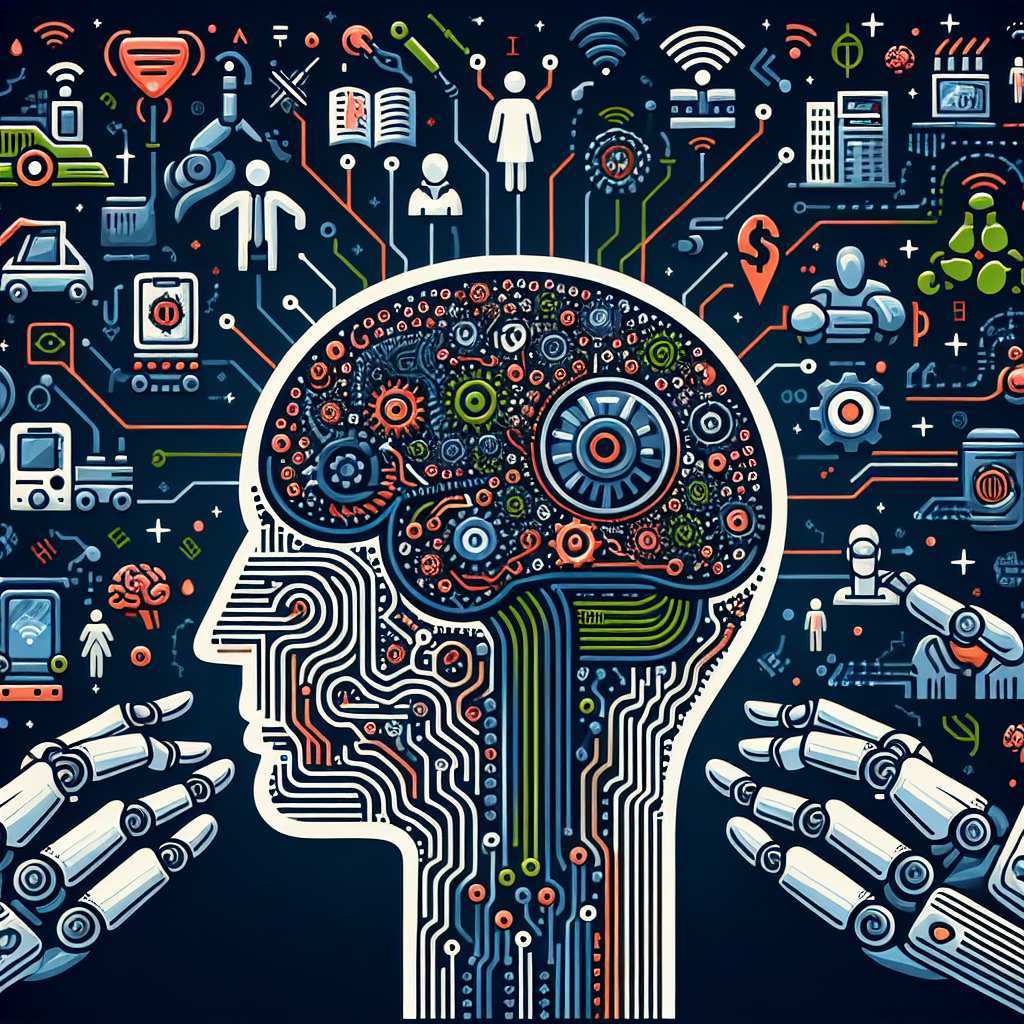The Impact of AGI on the Job Market: Will Robots Take Over?
Artificial General Intelligence (AGI) is a term used to describe the hypothetical ability of a machine to perform any intellectual task that a human can do. This concept has sparked both excitement and concern among experts and the general public alike. One of the major areas of concern is the potential impact of AGI on the job market. Will robots take over human jobs, leaving millions of people unemployed? In this article, we will explore the potential impact of AGI on the job market and discuss the possible implications for the future of work.
The Rise of Artificial Intelligence
Artificial Intelligence (AI) has already made significant strides in recent years, with machines becoming increasingly capable of performing tasks that were once thought to be the exclusive domain of humans. From self-driving cars to virtual assistants, AI has become an integral part of our daily lives. However, most of the AI applications we see today are considered narrow AI, meaning they are designed to perform specific tasks within a limited range of capabilities.
AGI, on the other hand, represents a significant step forward in AI development. AGI systems would have the ability to understand and learn any intellectual task that a human can perform, making them potentially more versatile and powerful than current AI systems. This has led to speculation about the potential impact of AGI on the job market and the future of work.
The Impact of AGI on the Job Market
The potential impact of AGI on the job market is a topic of much debate among experts. Some argue that AGI will lead to the automation of a wide range of jobs, potentially displacing millions of workers in various industries. Others believe that AGI will create new job opportunities and lead to the creation of new industries and markets.
One of the main concerns is the potential for AGI to automate tasks that are currently performed by humans. Jobs that involve routine or repetitive tasks, such as data entry, customer service, and manufacturing, are seen as particularly vulnerable to automation by AGI systems. This could lead to widespread job displacement and economic disruption, particularly for workers in low-skilled and low-wage jobs.
On the other hand, some experts argue that AGI will create new opportunities for workers, particularly in high-skilled and creative industries. AGI systems could be used to augment human capabilities, allowing workers to focus on more complex and creative tasks while leaving routine tasks to machines. This could lead to increased productivity and innovation, creating new job opportunities in emerging industries such as AI research, robotics, and data science.
Another potential impact of AGI on the job market is the redistribution of wealth and income. As automation and AI technology become more prevalent, there is a risk that wealth and income inequality could increase, with a small number of highly skilled workers benefiting from the new opportunities created by AGI while millions of low-skilled workers are left behind. This could lead to social unrest and political instability, as workers demand greater economic equality and job security.
FAQs:
1. Will robots completely take over human jobs?
While it is possible that robots and AGI systems could automate a significant number of jobs in the future, it is unlikely that they will completely take over all human jobs. Many jobs require human skills such as creativity, empathy, and critical thinking that are difficult for machines to replicate. Additionally, the development of AGI is still in its early stages, and it is unclear how quickly it will progress.
2. What can workers do to prepare for the impact of AGI on the job market?
Workers can prepare for the impact of AGI on the job market by developing skills that are less likely to be automated by machines. This includes skills such as critical thinking, problem-solving, creativity, and emotional intelligence. Workers should also consider retraining or upskilling in emerging industries such as AI research, data science, and robotics.
3. How can governments and policymakers address the potential impact of AGI on the job market?
Governments and policymakers can address the potential impact of AGI on the job market by investing in education and training programs that help workers develop the skills they need to succeed in an increasingly automated world. They can also implement policies such as universal basic income and job retraining programs to support workers who are displaced by automation. Additionally, governments can regulate the development and deployment of AGI systems to ensure they are used responsibly and ethically.
In conclusion, the impact of AGI on the job market is a complex and multifaceted issue that will require careful consideration and planning by policymakers, businesses, and workers alike. While there are concerns about the potential for job displacement and economic disruption, there are also opportunities for innovation and growth in emerging industries. By preparing for the impact of AGI on the job market and investing in skills and education, we can ensure that workers are equipped to succeed in an increasingly automated world.

